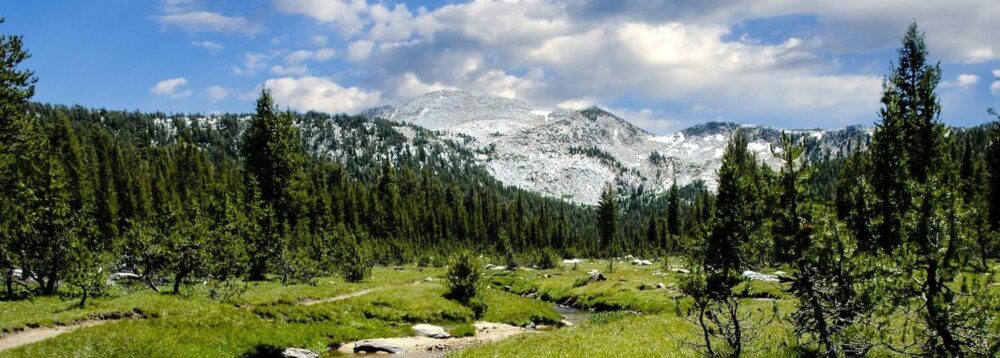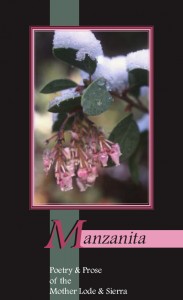Book signing at the Arts Bash this coming Saturday, Oct. 12! Will post some pics soon.
Tuolumne Meadows Poetry Festival and Workshops: August 17-18, 2013
Another trek up to Tuolumne Meadows for the Poetry Festival, in August, right before the Rim Fire ignited and took its toll up in Yosemite country. This time, David Mas Masumoto charmed everyone with his luscious peach samples and peachy wisdom in words, and Mark Doty brought tears of laughter and heartfelt sadness to our eyes…sometimes at the exact same moment. Jane Hirshfield gave us all the gift of her poems. Then, Jay Deming with his poetry workshops and exercises walked the walk as his poems moved metaphors around like rollicking boulders. Kira Shammen mesmerized us all with her violin/fiddle/wood-stringed-thing that turned into a magical being. And then there was Margaret who knits it all together, host and organizer, self-effacing and shy, but what a powerhouse under that lithe demeanor!
As we left the park and headed back down to the foothills, we saw the Rim Fire to our right on Hwy 120. I said to Roberta, we didn’t see that coming up, did we? It looked unattended burning in a canyon not too far from Cherry Road, no planes, no fire tenders, no men in yellow suits doing battle…nada. I wondered, where are the planes? Even a spotter? Nothing. It was about 4:30. Still early enough to send out the tankers. Sadly, it was the “let it burn” mentality governed by some US Forest Service official who got the thumbs up to let the monster go. I know all the arguments. I am still in favor of sensible management — a combo of small fires and managed conservation with logging and timber personnel allowed in to excavate safely and extract needed fuel for biofuels, for lumber, and other forest products.
What about the red-legged or yellow-legged frogs, huh? Just two weeks before a Calaveras Enterprise front page touted the dangers of the extinction of these little guys up in Yosemite land. The fires took care of them. No need to fight the ranchers and developers and timber concerns about the little critters anymore as they were pulverized by infernos. Maybe the spotted owls could get out, or the woodpecker, the bears and the deer that everyone worried about — they can outfly or outrun the flames. But not those little frogs. No one is talking about that now. It’s very quiet out there when it comes to the frogs.
Never mind that cattle were lost, burned, and otherwise traumatized by the event. These animals keep the brush down naturally.
Sure, in about two hundred years some of the trees will come back to that height. But in the meantime, no. Gone from view.Ditto the habitat that went with it, providing a home for many animals, insects and plants in the ecosystem, including humans.
That beauty could have remained and the undergrowth could been cleared and utilized for much-needed wood products and biofuel, with people put to work to boot with some management plans in place. And don’t blame the sequester cuts. Puh-lease.
Tuolumne Meadows Poetry Festival 2012
 A few of us die-hard poets and nature lovers trekked up to Parsons Meadow Lodge festivities, arising early, packing the car, and meeting at 6 AM for the drive up the mountain. We arrived just in time for some of Camille Dungy’s workshop exercises by the Tuolumne River, with the rushing sound of the water behind us helping with the flow. Then a brief lunch, with shared items from Gail’s lunch and our own snacks added in, and then a commune with the river and quiet time to write, walk, take photos, and simply enjoy the environs. The Unicorn mountain behind us, and the back side of Cathedral Peak in another direction, we were in good company.
A few of us die-hard poets and nature lovers trekked up to Parsons Meadow Lodge festivities, arising early, packing the car, and meeting at 6 AM for the drive up the mountain. We arrived just in time for some of Camille Dungy’s workshop exercises by the Tuolumne River, with the rushing sound of the water behind us helping with the flow. Then a brief lunch, with shared items from Gail’s lunch and our own snacks added in, and then a commune with the river and quiet time to write, walk, take photos, and simply enjoy the environs. The Unicorn mountain behind us, and the back side of Cathedral Peak in another direction, we were in good company.
The featured writers–Mike Burwell, F. Daniel Rzicznek, Margaret Eissler(organizer), and Camille Dungy–filled the lodge with good words, from 1:00-2:30, and set the rest of the day ticking – good poems to feed on– and Shira Kammen’s music once again sublime. The afternoon included a walk, a supper near the trail directly in the meadow, with a view of blue ponds formed from river rivulets and tributaries, and four poetesses speaking music amid the unwrapping of the shared dishes for the feast.
The evening approached, with the open mic luring the campers and poets back in to the lodge, its stone walls holding us in an embrace. With hot coffee and camaraderie, humor, poetry, storytelling, and music, it was the perfect campfire without the pit. We were the community of humanity, sharing voice and sound that reverberated long after the event ended. 
We had forgotten flashlights, so the journey back would have resulted in some injuries down those rocky trails had not a poetry couple given us that hat headlamp to light our way back to the vehicle. We survived. Next time, we vowed, we would rent a tent cabin at Wolf or somewhere nearby, or at least a campsite, and sleep there, catching the next morning’s workshop as well and staying there, luxuriating in all that greenery and river water. And next time, we would all bring a flashlight.
Poems are coming out of that adventure.

My recent poetry reading from River by the Glass at Black Sheep Winery was an intimate, lovely setting. It was quiet, moisturey cool under the trees despite the 98-degree day, and with good friends in the audience, as well as new friends made, it was a delightful afternoon that flew by in the pleasure of fine wine and word-tasting. We had the Chardonnay and the award-winning Zinfandel, and we had the pleasure of a good discussion about the nuances of words and the insights behind poetry. I read the first poem, “Drowning at the Kern” and a few other river poems to celebrate water and moisture, that parching day. A few light-hearted poems contrasted to the sadness of that first poem – and I think we were all satiated by the end of the afternoon. It was a delight to have all these wonderful people there, talking about poems, about life, about relationships, and about what really matters in the hubbub of our days.

Ironstone Reading August 13 was a wonderful gathering of some of the finest poets in our region!

Joy Roberts, MWP business manager, who keeps the press connected and well-oiled and ready for business! She’s also one of the hottest editors in our region. If you need your book edited, manuscript prepared for publication, she is the one who will set you straight. Also, she’s a good friend and has a good shoulder for crying on, if needed. Every poet needs a good shoulder and good friends. Here she is at the Ironstone Vineyards reading.
Ironstone Vineyards ~ Moonstruck with Manzanita Aug. 13, 2012 was a wonderful gathering! Many talented poets read to the rhythms of bassist David Sackman throbbing in the background. It was warm that day — but the Heritage Room was so lovely and cool — the day was delightful! Jeannette Clough (Island, Red Hen Press) came all the way from LA to be with us–outstanding poet, along with others who traveled a distance — Sande Trezise, Brigit Truex, Zoe Keithley, from Sacramento, Kevin Arnold (from San Jose Poetry Center, President), Mr. Clewett from Elk Grove, and more from several counties came out to enjoy the poets and their fine words.

Brigit Truex reads from her chapbook at Ironstone

This is Linda Field, Manzanita Voices radio show designer and host. She is also a very good friend! Linda has a novel she is writing, working its way through to the surface, one chapter at a time. Be watching for it! Her New York roots meet Mother Lode sister land and conjoin in this novel. Can’t wait to see it in print at Barnes and Noble! writers@kvgcradio.com


- Kathy Isaac-Luke reads from Chrysalides


Two writers, Goldpanning at Roaring Camp
Bret Harte should have written about these two gold diggers. Little did they know that their dreams for riches, trickled down to mere flakes and flashes in the pans. Not referring to the ladies, mind you, but the laden pans. Next morning, they might just as well be frying up a couple of golden trout in the other kinds of pans.


















 , A Collection of Poems by
, A Collection of Poems by 






